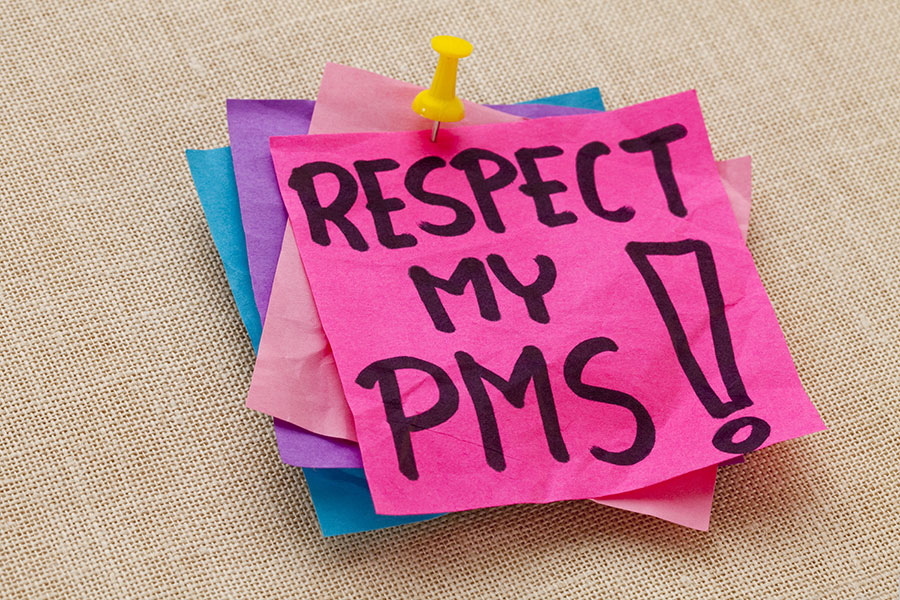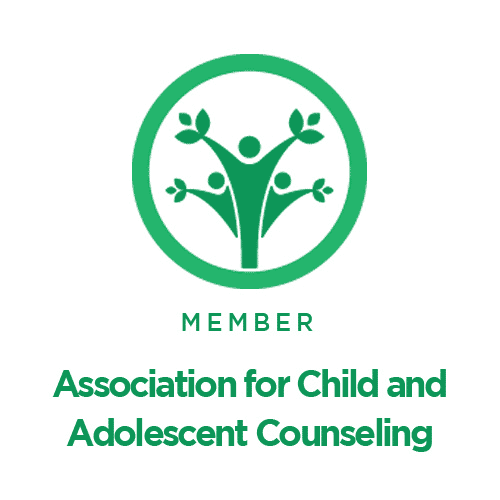“I only feel happy 2 weeks of the month.” “I’m so emotional around my period.” “I feel so anxious before I get my period.” “I cry over everything right before my cycle.” “I’m up worrying for hours before my period.”
Most woman experience some mood changes surrounding their menstrual cycle with the highest incidences occurring among woman in their late 20’s to early 30’s. You are not alone if you are on a hormonal roller coaster each month. As a matter of fact, did you know hormones control and regulate our bodies as well as our mental health? Hormones are affected by neurotransmitters in the brain such a serotonin and dopamine, which are associated with mood regulation. This has a lot to do with psychological symptoms such as anxiety, depression and mood swings before your period. So, while you may hear more about bloating and cramps, anxiety is actually a hallmark of PMS. According to Dr. Hall, “Hormone fluctuations, PMS interrupts and upsets that balance, often triggering symptoms like increased anxiety. Because of the difference in brain chemistry and the impact of hormones such as estrogen and progesterone, woman are more likely than men to suffer from anxiety disorders and even panic attacks.” (Why Your Anxiety Spikes During Your Period, and Expert Tips for Relief, Dacy Knight).
It’s important to note that hormone fluctuations can impact women differently, while one person may experience little to no PMS symptoms others may experience more moderate to severe symptoms. If you’re experiencing extreme PMS symptoms that impact your relationships and stop you from doing everyday things, you may have Premenstrual Dysphoric Disorder (PMDD) or Premenstrual Exacerbation (PME). PMDD is a severe form of PMS that includes physical and behavioral symptoms that usually resolve with the onset of menstruation. PME refers to the worsening of symptoms from another disorder, such as a major depressive disorder or generalized anxiety disorder. Symptoms of PME are present throughout the entire cycle and become more severe during the premenstrual phase. These two are often very difficult to distinguish from each other and to further confuse you can co-exist! PME is still lagging with research and is not a formal diagnosis.
The bottom line is that if you are experiencing significant anxiety or mood changes surrounding your menstrual cycle that impact the daily functioning of yourself or child, you should reach out to your OBGYN or physician to discuss symptoms and treatment options. If you are experiencing symptoms to a lesser degree, please read the tips below to help manage PMS related mood swings. You are important, your quality of life is important and it’s time to get a hold of your symptoms to balance out your life! You’re worth it!
Tips for Handling PMS Related Mood Swings
Exercise: Physical activity can lift your mood, improving overall anxiety and depression. It also can help release endorphins which boost sleep and make you happier.
Eat Healthy: According to Cleveland Clinic, Ob/Gyn Dr. Linda Bradley says “Exercise and eating right can control bloating, depression, irritability and mood changes associated with PMS.” (11 Diet Changes That Help You Fight PMS). She recommends these dietary shifts: reduce salt, eat fruits and vegetables, drink plenty of water, eat more calcium/ low-fat dairy, get your Vitamin D, snack on nuts, eat complex carbs, eat whole grains, limit alcohol, limit caffeine and eat iron rich foods.
Work on Stress Management: Stress can make PMS symptoms worse which is why it’s important to work on learning techniques that reduce stress. Attending counseling can be a great way to develop these techniques and has been found to be effective for PMS treatment and emotional changes.
Sleep: While many people report interrupted sleep during PMS, it’s important to try and relax. Sleeping well can help ease PMS.








